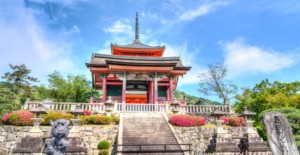
After reading Bo Yang’s The Ugly Chinaman: And the Crisis in Chinese Culture, this book unintentionally gave me a new perspective on why some Feng Shui predictions or interpretations appear so dire. While the author never mentioned the words “Feng Shui” once in the essays, the subtext for me was very relevant to my profession.
Early Feng Shui Masters had to be enlightened beings, with both scientific and mystical sensibilities, but they still had to be influenced by what was happening in their own country and culture. Similarly, many years ago I asked Master Sang how come so many of the star combinations have negative interpretations and he replied that most things in life that happen to us are negative. He said it with a smile because we both share a spiritual belief that planet Earth is a school where we are supposed to learn profound lessons, with pain or struggle unavoidable.
In The Ugly Chinaman, Bo Yang describes numerous examples in his country’s history and culture where the Chinese psyche has been negatively programmed and beaten down: through violence, oppression, sexism, poverty, and thousands of years of despotic rulers. If the average person in a particular culture feels like their life is just hanging on a thread, with both real and imagined threats coming from all directions, it is certainly going to infect a person’s attitude about life in general.
Constant anxiety can affect all kinds of decisions a person makes and how many risks they take. For example, historically if a Chinese person got in trouble with the government, his whole family could receive some kind of punishment or ostracizing as well. (And as I update this article, I shudder to think how this is now happening in the United States of America.) This clearly made it imperative for each person, in a society as repressive as China, to be on vigilant patrol to make your family members or neighbors did not sabotage your own diminished pursuit of happiness.
This cultural relationship with Feng Shui comes in many layers. For instance, there are certain areas of a home or business which can generate gossip or legal problems. In American society, these potentials are not imminent threats as we have many legal rights which protect the average citizen. We even have a nursery rhyme that goes, “sticks and stones may break my bones, but names will never hurt me.” In fact, we have famous personalities who build careers and wealth based on gossip, slander and sexual impropriety.
And yet, the threat of mere gossip could mean something totally different in a culture where people have fewer personal rights. In current times, a woman in the Middle-East might still be stoned to death based on alleged sexual indiscretions. For a person in this kind of society, “gossip” can ruin or end a person’s life.
In Feng Shui terminology we speak about “poison arrows,” the “death position,” and all kinds of scenarios that might suggest natural or man-made disasters. In discussing this with a professional peer once, she emphasized that it was the role of a Feng Shui practitioner to first help a person remove the threats and obstacles that could undermine health, well-being and safety, before we start showering the client with prosperity and romance remedies.
Another cultural embarrassment which the author Bo Yang describes in detail is the Chinese person’s supposed lack of empathy for the tragedies of others. He compared the crowds witnessing a train wreck to being like a spectator sport. If there is any shred of truth to this, then I can certainly understand the obsession with being safe and just focused on ones’ self at the expense of others.
If something bad happens to your property like fire, flood or avalanche, and living in a society where you cannot count on anyone to intervene, then you really, truly shouldn’t risk the hazards of living on the very top of the hill or the very bottom of the hill. These are just two general Feng Shui principles, which in modern times, get translated to mean that you shouldn’t live on the first floor of a tall building nor be in the penthouse suite. The panic and paranoia that gets unintentionally perpetuated in some Feng Shui Schools might be partially the result of 5,000 years of conditioning.
Author: Kartar Diamond
Company: Feng Shui Solutions (R) since 1992
From the Feng Shui History and Culture Series
